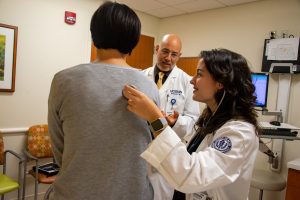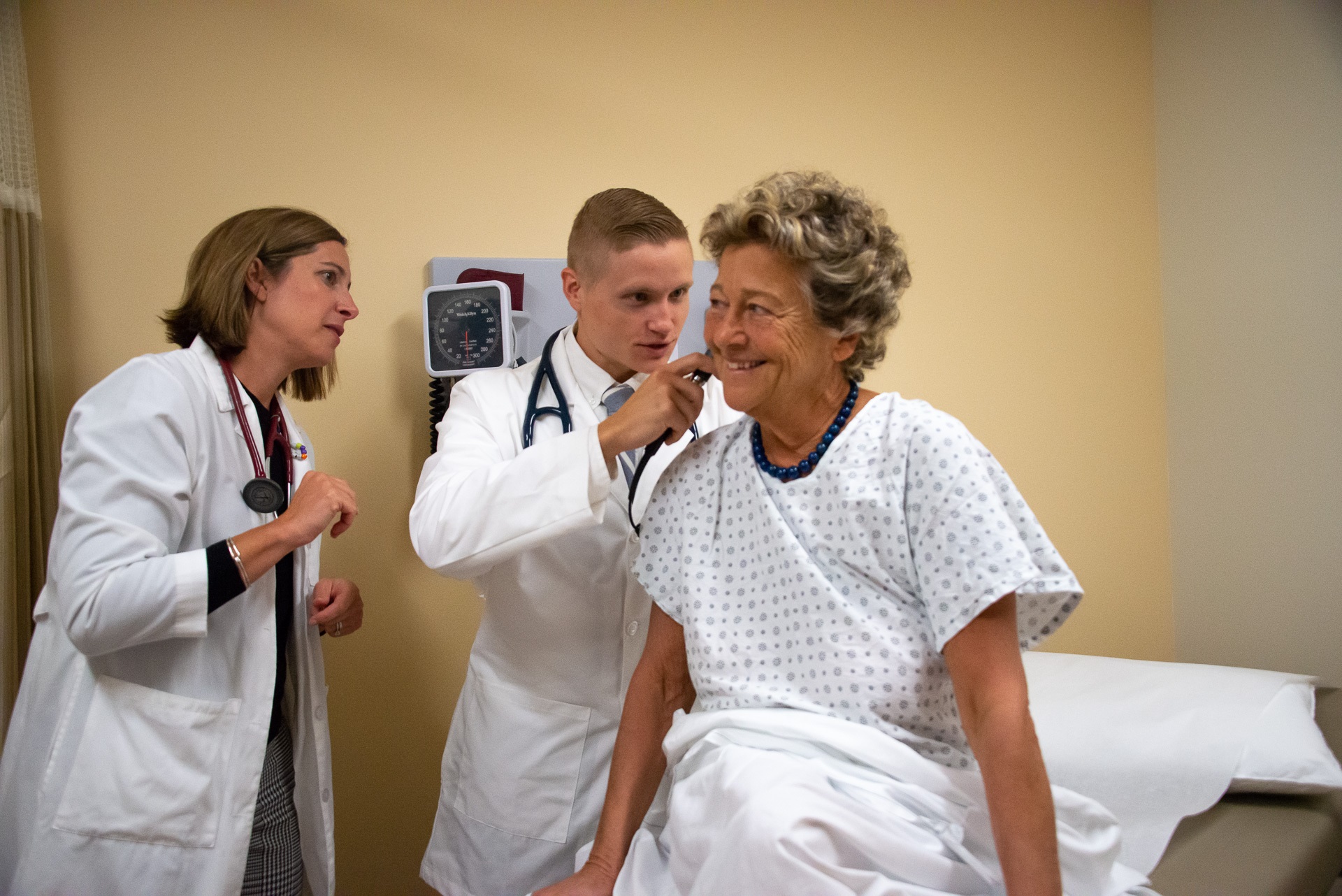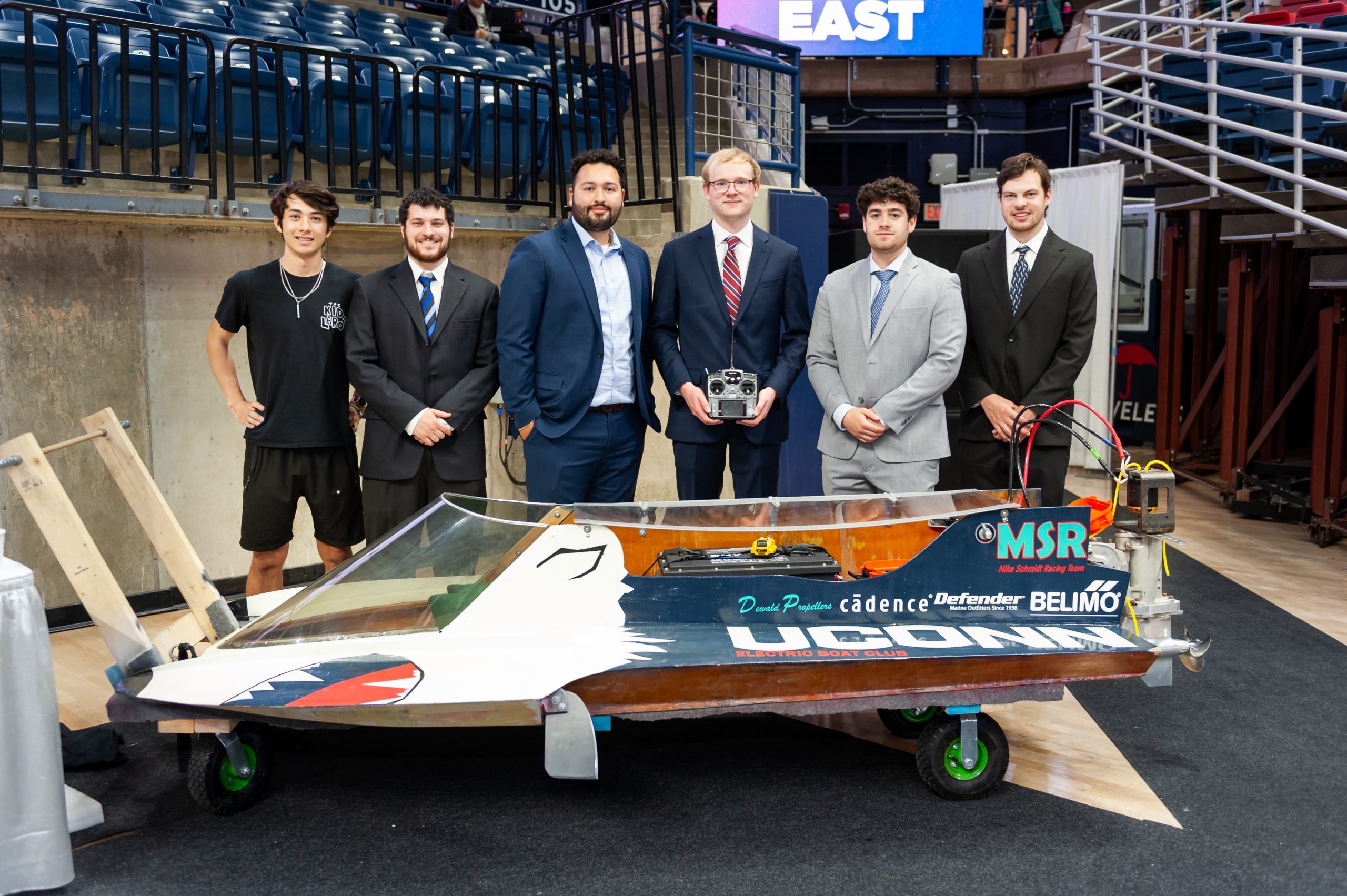UConn School of Medicine’s Clinical Longitudinal Immersion in the Community (CLIC) Program has students working alongside community-based primary care physicians during the first three—and sometimes four—years of medical school. Last week, another class of first-year students and their physician preceptors marked the start of the program’s 25th year.
“Our longitudinal clinical mentorship program was one of the first of its kind when introduced in 1995 (then named Student Continuity Practice) and has become a model curriculum for medical schools across the nation,” says Amy Chmielewski, director of Clinical Education Administration at UConn School of Medicine. “The early clinical exposure is what attracts many of the students that apply to come here.”
This September the 110 students of Class of 2023, the medical school’s largest incoming class to date, were matched with their faculty preceptors, many of which are UConn Health physicians. Currently, 350 medical students are enrolled in the CLIC Program, with 250 physician faculty across 60 Connecticut towns serving as medical student preceptors.
One of the CLIC Program sites is UConn Health’s Internal Medicine Associates practice in the Outpatient Pavilion.
“It’s really cool applying what we are learning in medical school,” shared first-year medical student Grigoriy Androsov, 27, of New Hampshire. “It’s a real strength of UConn and an important experience that gives us the opportunity to become doctors. The early clinical experience is allowing me to build patient-care skills and patient-physician relationships to build better patient outcomes.”
One of Androsov’s first patients he cared for was Antonella Bona, 71, of Hartford, who happens to be a former high school science and biology teacher.
“I come from academia so I think it’s really great,” says Bona, a primary care patient of CLIC Program preceptor Dr. Laurie Caines, a 2006 graduate of UConn School of Medicine.
“I’ve been poked and prodded by the medical students,” laughed Bona. “I know the quality of UConn Health’s care and I’m very comfortable being cared for here by my doctor along with the medical students.”
Caines went through the CLIC Program experience as a medical student and has served as a medical student preceptor for the program since 2010.

“When you teach others you learn more,” says Caines. “I love teaching the medical students in the clinic.”
First-year medical student Emily Lopez-Santa, 22, hails from Puerto Rico, having recently graduated from the University of Puerto Rico, and is learning from her primary care preceptor, Dr. Julian Nieves, and his patients.
“This was one of the reasons I chose UConn for its early patient exposure,” says Lopez-Santa. “It’s really exciting. I met my first patient ever. I really like being able to interact with real patients so early on in medical school.”
And patients aren’t sugarcoating things in the exam room, shared Lopez-Santa.
“I am really getting in early on the inside scoop of what patients like and don’t like. They have been sharing real feedback, tips and tricks with us medical students and it’s helping us so we don’t create any bad habits early on.”
Lopez-Santa added: “It’s amazing to see the impact our patient care is having already and how patients trust us. We really take that to heart.”
And compared to her home of Puerto Rico Lopez-Santa shared that Connecticut weather has been a little different.
“It’s cold but UConn is warm like a family. Everyone is so willing to always help us learn,” says Lopez-Santa.
Her primary care preceptor Nieves agrees.
“It’s always a privilege to be involved with medical students and the CLIC Program,” says Nieves. “The early insights we share with students have a fundamental role in their educational experience.”
CLIC provides a unique experience allowing the student to experience first-hand the realities of medicine, from patient care to health promotion and disease prevention. Students also gain an appreciation for the business of medicine, and the personal and professional challenges that physicians face.
Chmielewski added: “The school would not be able to have such a successful program without the generous participation of the faculty, their staff, and their patient populations.”



